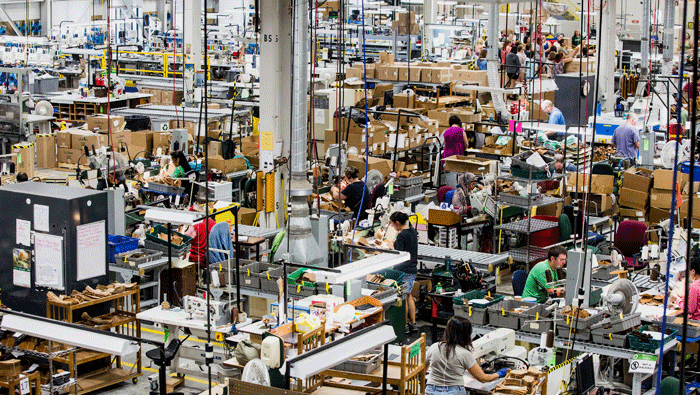
One positive outcome of the trade tensions of recent years is a renewed interest in understanding how trade actually works, in terms of aggregate gains, distributional effects, adjustment costs, and other factors. Governments are increasingly looking for ways to mitigate the negative effects of trade through labour-market policies and broader interventions, and scholars are generating a new wealth of knowledge that could make globalization work for everyone, provided the significant trade-policy risks looming on the horizon are addressed.
To borrow the title of a 1982 Australian film, 2017 will probably be remembered as the year of living dangerously, at least in terms of globalization. Trade policies around the world are under intense scrutiny, and the open, rules-based trading system is being threatened by protectionist pressures in key advanced countries. How the international system will fare remains to be seen. But it is clear that we can no longer count on business as usual.
To navigate today’s uncertainty, it helps to examine trade dynamics “behind the headlines,” which was the theme of the World Trade Organization’s Public Forum 2017. Populist rhetoric notwithstanding, there is strong evidence to suggest that trade boosts incomes and living standards, by increasing productivity and reducing prices for firms and consumers. And this is true in both emerging and advanced economies.
Trade is clearly a key engine propelling global economic growth and efforts to end poverty. Moreover, it is widely acknowledged that trade could make an even larger contribution to growth than it already does. Governments need only remove obstacles in traditional sectors such as agriculture, and update their policy frameworks to account for new sectors such as e-commerce.
How such trade liberalization affects employment and wages – a question that has come to the fore in recent years – is the subject of the WTO’s recently published World Trade Report 2017. The report finds that more open trade tends to increase both wages and the rate of employment, but that not all workers benefit. How the gains are shared depends largely on regional characteristics and individual differences between workers.
This echoes the findings of Making Trade an Engine of Growth for All, published jointly by the International Monetary Fund, the World Bank, and the WTO earlier this year. As that report concluded, realizing trade’s full potential requires domestic policies to improve skills and education, reduce intra-national frictions, and mitigate the costs of economic adjustments.
Technological innovation is even more important than trade in driving economic growth. But, despite the obvious benefits of robotization, artificial intelligence (AI), and other technological developments, there are growing concerns about the impact of such innovations on jobs.
Yet, according to the new WTO report, empirical studies overwhelmingly find that, with a few relevant exceptions, technological change does not substantially reduce aggregate labour demand and employment. In developed and developing countries alike, the most obvious impact of technological change is not on the level of employment, but on the types of jobs and skills that are in demand.
In another recent report, Trouble in the Making? The Future of Manufacturing-Led Development, my World Bank colleagues Mary Hallward-Driemeier and Gaurav Nayyar argue that firms and workers in developing countries need to be better positioned to seize opportunities associated with new technologies and globalization patterns. To that end, they should pursue policies to improve competitiveness, existing capabilities, and connectedness.
Get your essential daily briefing delivered direct to your email inbox with our e-newsletter
In the current environment, it is refreshing to see a renewed focus on ways to expand the benefits of trade. Globally, a more inclusive trade agenda is emerging, with the goal of fostering women’s entrepreneurship and participation in international trade placed at the top. The hope now is that by exploiting digital technologies and addressing specific gender-related challenges, we can bring more women into the fold.
Moreover, we can and should do more to support small- and medium-size firms that are trying to participate in global value chains and in e-commerce. And the international community needs to reenergize its efforts to bring more private investment to low-income countries generally, so that they can integrate more fully into the global economy.
To be sure, there are clouds on the horizon, in the form of policy decisions that could reverse three decades of progress in globalization. But those clouds have a silver lining. Rather than sit idly and wait for the storm, policymakers and academics are improving their understanding of trade and technology, and focusing on ways to help those who have missed out on the benefits. As these efforts begin to bear fruit, we can make globalization work again – for everyone. - Project Syndicate